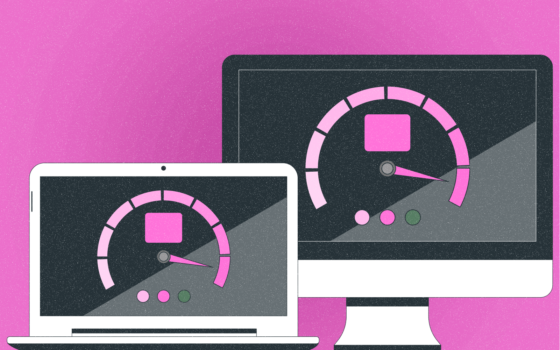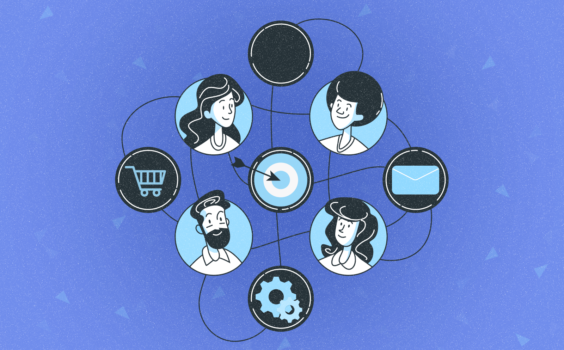HR in the Auto Industry
Introduction to HR in the Auto Industry
Human Resources (HR) in the automotive industry plays a crucial role in managing the workforce that drives innovation, production, and sales in one of the world's largest manufacturing sectors. The auto industry, known for its fast-paced environment and technological advancements, requires HR professionals to be adaptable, forward-thinking, and well-versed in industry-specific challenges.
This comprehensive glossary aims to provide a deep dive into the key concepts, strategies, and terminolgy related to HR in the automotive sector. Whether you're an HR professional looking to specialize in this field or an industry executive seeking to better understand the human capital aspects of your business, this resource will serve as a valuable reference.
Key HR Functions in the Auto Industry
Recruitment and Talent Acquisition
Recruiting top talent is a critical function for HR departments in the automotive sector. With the industry's rapid technological advancements, particularly in areas like electric vehicles and autonomous driving, HR professionals must be adept at identifying and attracting candidates with specialized skills.
Key aspects of recruitment in the auto industry include:
- Sourcing candidates with expertise in emerging technologies
- Developing partnerships with technical schools and universities
- Implementing competiitve compensation packages to attract top talent
- Utilizing industry-specific job boards and recruitment platforms
Training and Development
The automotive industry is characterized by constant innovation and evolving manufacturing processes. HR departments must ensure that employees at all levels receive ongoing training to stay current with industry trends and technological advancements.
Important aspects of training and development include:
- Implementing apprenticeship programs for skilled trades
- Providing continuous education on new technologies and production methods
- Developing leadership programs to groom future managers and executives
- Offering cross-functional training to improve versatility and efficiency
Employee Relations and Labor Management
Many automotive companies have unionized workforces, making labor relations a critical aspect of HR management in this industry. HR professionals must navigate complex collective bargaining agreements and maintain positive relationships with union representatives.
Key responsibilities in this area include:
- Negotiating and interpreting collective bargaining agreements
- Handling grievances and dispute resolution
- Ensuring compliance with labor laws and regulations
- Fostering a positive work environment to prevent labor disputes
Compensation and Benefits
Designing competitive compensation packages is essential for attracting and retaining talent in the automotive industry. HR departments must balance the need for attractive salaries and benefits with the company's financial constraints.
Important considerations in compensation and benefits include:
- Developing pay scales that reflect industry standards and regional variations
- Implementing performance-based incentive programs
- Offering comprehensive health and retirement benefits
- Providing unique perks such as employee vehicle purchase programs
Industry-Specific HR Challenges
Globalization and Cultural Diversity
The automotive industry is highly globalized, with many companies operating production facilities and sales offices across multiple countries. HR professionals must navigate cultural differences, language barriers, and varying labor laws to manage a diverse workforce effectively.
Key challenges in this area include:
- Developing cross-cultural training programs
- Implementing global HR policies while respecting local customs
- Managing expatriate assignments and international relocations
- Ensuring compliance with international labor standards
Technological Disruption and Skill Gaps
The rapid pace of technological change in the automotive industry, particularly in areas like electric vehicles and autonomous driving, has created significant skill gaps in the workforce. HR departments must work to bridge these gaps through strategic hiring and comprehensive training programs.
Important strategies for addressing skill gaps include:
- Partnering with educational institutions to develop relevant curricula
- Implementing reskilling and upskilling programs for existing employees
- Utilizing temporary staffing and consultants to fill immediate skill needs
- Developing succession plans that account for evolving skill requirements
Workplace Safety and Ergonomics
Manufacturing environments in the automotive industry present unique safety challenges. HR departments play a crucial role in developing and implementing safety protocols, ergonomic workplace designs, and health and wellness programs.
Key aspects of workplace safety include:
- Conducting regular safety audits and risk assessments
- Implementing ergonomic workstation designs to prevent repetitive strain injuries
- Developing comprehensive safety training programs
- Ensuring compliance with OSHA and other safety regulations
HR Metrics and Analytics in the Auto Industry
The use of data-driven decision making has become increasingly important in HR management within the automotive sector. HR professionals must be adept at collecting, analyzing, and interpreting various metrics to inform strategic decisions.
Key Performance Indicators (KPIs)
Important HR KPIs in the automotive industry include:
- Employee turnover rate
- Time-to-hire for critical positions
- Training effectiveness and ROI
- Labor cost per unit produced
- Employee engagement scores
- Safety incident rates
Predictive Analytics
HR departments are increasingly using predictive analytics to anticipate future workforce needs and potential issues. This can include:
- Forecasting future skill requirements based on technological trends
- Predicting turnover risks among key employees
- Anticipating labor disputes or union activities
- Projecting future labor costs and productivity levels
Emerging Trends in Automotive HR
Remote Work and Flexible Schedules
While manufacturing roles typically require on-site presence, many automotive companies are exploring remote work options for non-production staff. HR departments must develop policies and technologies to support this shift.
Key considerations include:
- Implementing secure remote access technologies
- Developing fair and equitable remote work policies
- Ensuring effective communication and collaboration across dispersed teams
- Addressing potential impacts on company culture and employee engagement
Diversity, Equity, and Inclusion (DEI) Initiatives
The automotive industry has traditionally been male-dominated, particularly in technical and leadership roles. Many companies are now focusing on improving diversity and inclusion throughout their organizations.
Important aspects of DEI initiatives include:
- Implementing blind resume screening processes
- Developing mentorship programs for underrepresented groups
- Providing unconscious bias training for all employees
- Setting and tracking diversity goals for recruitment and promotion
Sustainability and Corporate Social Responsibility
As the automotive industry shifts towards more sustainable practices, HR departments are playing a key role in aligning workforce management with broader sustainability goals.
This can include:
- Developing green skills training programs
- Implementing employee volunteer programs focused on environmental initiatives
- Incorporating sustainability metrics into performance evaluations
- Aligning compensation structures with company sustainability goals
HR Technology in the Automotive Sector
The adoption of advanced HR technologies is crucial for managing the complex workforce needs of the automotive industry efficiently.
Human Resource Information Systems (HRIS)
Modern HRIS platforms designed for the automotive industry often include:
- Integrated applicant tracking systems
- Workforce planning and scheduling tools
- Performance management modules
- Learning management systems for ongoing training
Artificial Intelligence and Machine Learning
AI and ML technologies are increasingly being applied to various HR functions in the automotive industry, including:
- Resume screening and candidate matching
- Predictive analytics for turnover and performance
- Chatbots for employee self-service and onboarding
- Personalized learning recommendations for employees
Conclusion
HR management in the automotive industry is a complex and ever-evolving field that requires a unique blend of industry knowledge, technical expertise, and people skills. As the industry continues to transform through technological advancements and shifting consumer preferences, HR professionals must remain agile and forward-thinking to effectively support their organizations.
By staying informed about industry trends, leveraging data and technology, and focusing on strategic workforce development, HR departments can play a crucial role in driving innovation and competitiveness in the automotive sector. This glossary serves as a starting point for understanding the key concepts and challenges in automotive HR, but ongoing learning and adaptation will be essential for success in this dynamic field.


